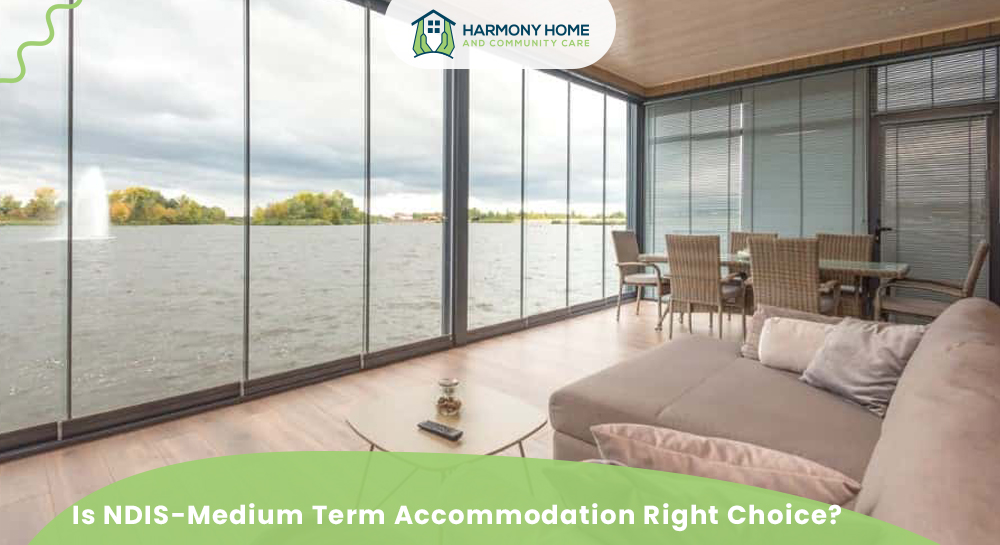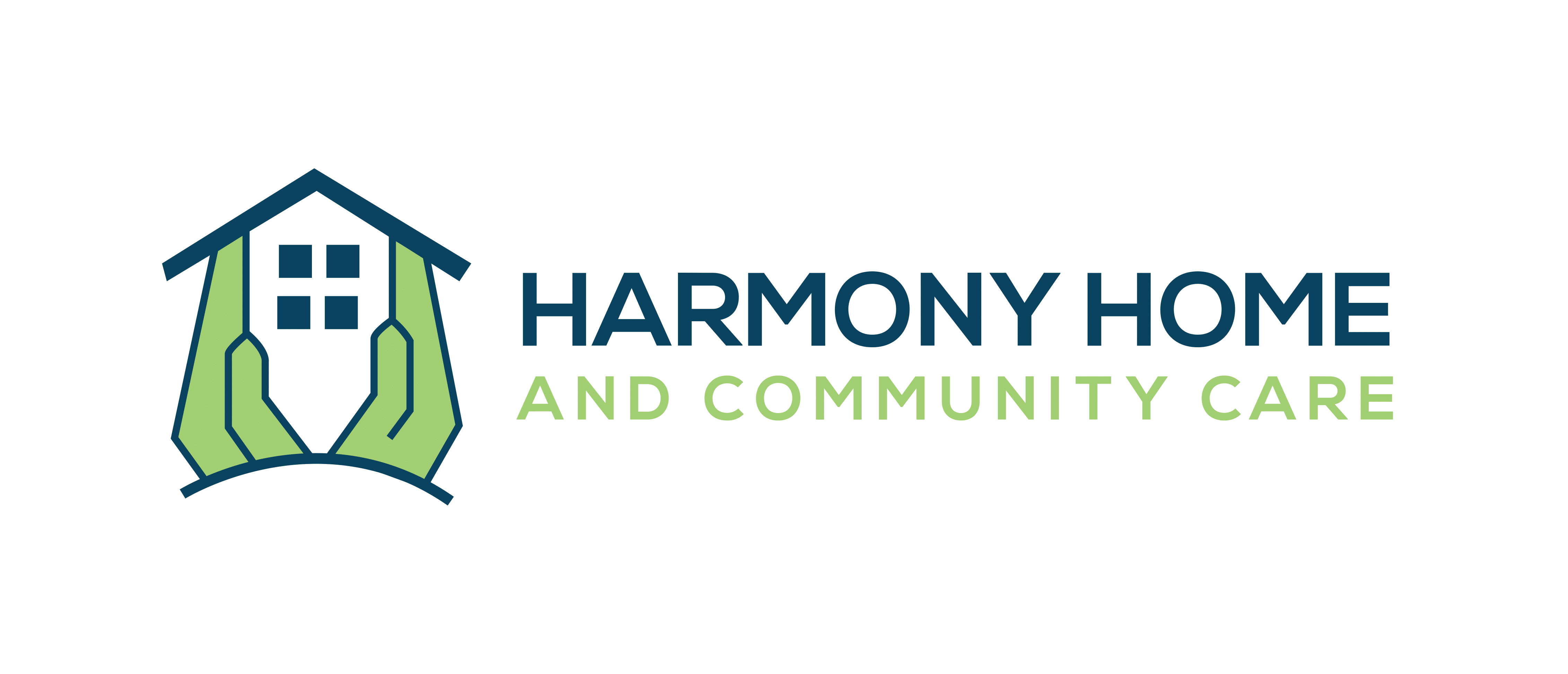Harmony Homes
October 20, 2023
Is NDIS-Medium Term Accommodation Right Choice?

Is NDIS-Medium Term Accommodation Right Choice?
Have you heard of NDIS-Medium Term Accommodation? If not, don’t worry, it’s a new scheme that can help people with disabilities who are transitioning from hospital or other health services into the community. The NDIS is available to people with disability and their families. It provides funding for support to help them live independently in their own homes, or somewhere else.
What is Medium Term Accommodation
Medium Term Accommodation (MTA) is a program that provides funding for people with disabilities to live in private rental properties for up to six months. This can be extended if you need more time to find suitable accommodation or if there are health reasons why you cannot move into your own home immediately.
The MTA program helps people who have been assessed by their NDIS planner as needing medium-term support, but do not qualify for Long Term Supported Accommodation (LTS). It gives them time and flexibility in finding a suitable home within the community. If these arrangements don’t work out, then your NDIS plan will be updated so that it fits better with your needs at that time.
Who is it for?
- If you have a disability and are eligible for the NDIS, this option may be right for you.
- If you have a permanent or temporary need for accommodation, this option may be right for you.
- If your disability is not eligible under the National Disability Insurance Scheme (NDIS), this option is not suitable as it does not meet all of your needs.

Recent Posts
Categories
What are the benefits?
The benefits of NDIS-Medium Term Accommodation are:
- Staying in your home and having your own space, privacy and independence
- Being supported by a support coordinator who can help with finding the right place for you
- Being part of a community that has people like you living there, who may become friends or even family members.
What is the cost?
The cost of medium-term accommodation depends on the type of accommodation you choose and whether or not it is supported by an NDIS provider.
You can claim a rebate from the NDIS for your accommodation costs if:
- Your chosen place is located within 50 kilometres from where your NDIS Plan was developed
- Your chosen place is not located within 50 kilometers but it’s not reasonable for someone with similar needs as yours to live closer due to factors such as distance from family members (this applies only if these family members live within 15 kilometers), cultural reasons or geographic isolation
What are the alternatives?
If you are receiving a temporary respite stay, you may not be able to move into permanent accommodation. You might be able to stay in your current home if it meets the access criteria for NDIS-funded accommodation. The NDIA has developed an Accessibility Assessment Tool that can help determine whether or not your home is suitable for someone with a disability who uses a wheelchair, mobility aid or other support device
Is Medium-Term Accommodation a Good Fit for You?
If you are receiving a temporary respite stay, it may not be possible for you to move into permanent accommodation.
If the NDIS-funded accommodation isn’t right for your family, talk to your local NDIS team about other options.
Services offered by Medium Term Accommodation
Access to quality NDIS-funded accommodation can be challenging. There are many options available, but each individual’s needs will differ. You must know what your options are and how they may affect you.
Medium-term accommodation is an option that many people with disabilities should be aware of as it allows them to remain in their community while receiving care and support on an ongoing basis. Each medium-term accommodation is supported by a support coordinator who will work closely with you and your family/carers to plan what level of assistance they need to live independently at home or in the community, including possible respite options if required.
How does it work?
The NDIS-Medium Term Accommodation funding is for people who require short-term or medium-term accommodation.
- You must be eligible for the NDIS and have an approved plan.
- You must secure funding through your NDIS plan to cover the cost of your accommodation, which can be either in a group home setting or private rental property (if you’re not able to live independently).
The funding provided by the NDIA will cover:
- Accommodation only
- Accommodation plus support services such as personal care and domestic assistance.
Access to quality NDIS-funded accommodation can be challenging.
If you are considering NDIS-funded accommodation, you must understand what this means.
NDIS-funded accommodation is a type of long-term care provided by an approved provider under the National Disability Insurance Scheme (NDIS). It can be either:
- Residential care – where people live in a residential setting (such as a nursing home) or semi-independent living arrangements; or
- Home support services – where people receive help with daily tasks in their own homes, such as cooking and cleaning.
Understanding the Need for Medium-Term Accommodation
Medium-term accommodation is an option that many people with disabilities should be aware of. It’s a good choice if you need more than just short-term housing but don’t want to move into permanent housing yet, such as if you’re still looking for work or your family situation is unsettled.
Who Is Eligible?
The NDIS will only pay for medium-term accommodation if you’re already receiving funding under their scheme and have been approved for NDIS-funded services in the past 6 months (or 12 months if you’re moving interstate). You’ll also need to meet one or more of these criteria:
- You are completing a program of treatment for a mental health condition;
- You are recovering from an acute episode of care;
- Your disability has prevented you from getting ready for independent living;
Evaluating Eligibility and Plan Alignment
The program is not designed for people with high care needs or requiring supervision 24/7.
To be eligible for NDIS-Medium Term Accommodation, you must have a permanent disability and be able to manage your finances. You also need to have an approved plan with the NDIS that includes medium-term accommodation as one of your goals.
The Role of Support Coordinators in the Accommodation Process
Each medium-term accommodation is supported by a support coordinator.
As a person with a disability, you will have access to a support coordinator who can help you understand your NDIS plan and assess the needs that need to be met. They will also assist with understanding the funding available, including how much funding is available in total and how it will be allocated across different areas of support such as housing or community participation.
NDIS Plans and Their Role in Securing Accommodation
You can get a place in NDIS medium-term accommodation if you secure the funding through your NDIS plan. To be eligible to receive funding, you need to have an approved plan in place before you can access it.
Setting Accommodation Goals in Your NDIS Plan
NDIS medium-term accommodation offers great opportunities but you need to be eligible for it first. The NDIS medium-term accommodation option is an excellent choice for people who have a plan and are eligible for it. You must also be able to afford the costs of living in this type of accommodation, as well as find the right place for you and get funding approved. If you meet these requirements and would like more information about how this can benefit your NDIS plan, contact us today!
Types of accommodation funded through the NDIS
When you are eligible for the NDIS and have a plan, you can apply to be placed in funded accommodation. There are two types of NDIS-funded accommodation:
- Supported Living – this type of accommodation is available for people over 18 years old who need some support with daily living activities but do not require 24/7 care.
- Community Residential Services – this type of accommodation offers 24/7 support and may be suitable if you need assistance with personal care or medication management.
Temporary Respite Stays and Permanent Accommodation
If you are receiving a temporary respite stay, you may not be able to move into permanent accommodation. If your NDIS plan is being paid by a state or territory government and they have approved the purchase of medium-term accommodation, it will be funded through their disability support system. If this is the case, then there’s no need for us to get involved in your funding application process.
The Role of Home Modifications and Supports
If you’re eligible, the NDIS will pay for the cost of your chosen accommodation. If you’re not sure whether or not your current home meets these criteria, talk to someone at NDIS and they can help you find out.
If it does meet them, great! You might be able to stay in your current home if it meets the access criteria for NDIS-funded accommodation.
Navigating NDIS Accommodation Choices
If you’re looking for long-term accommodation, NDIS-Medium Term Accommodation might not be right for you. You should talk to your local NDIS team about the type of accommodation that’s best for you and your family.
You can get a place in NDIS Medium Term Accommodation if:
- You’re eligible
- You secure funding through your NDIS plan
We hope this article has given you some insight into the NDIS-Medium Term Accommodation program and how it can help you. It’s a great opportunity for people with disabilities to access quality accommodation that they may not otherwise be able to afford.


